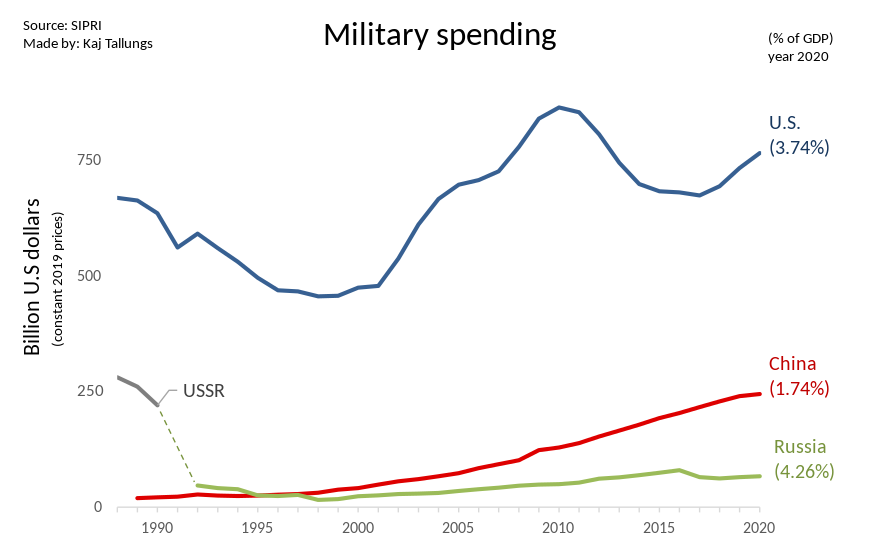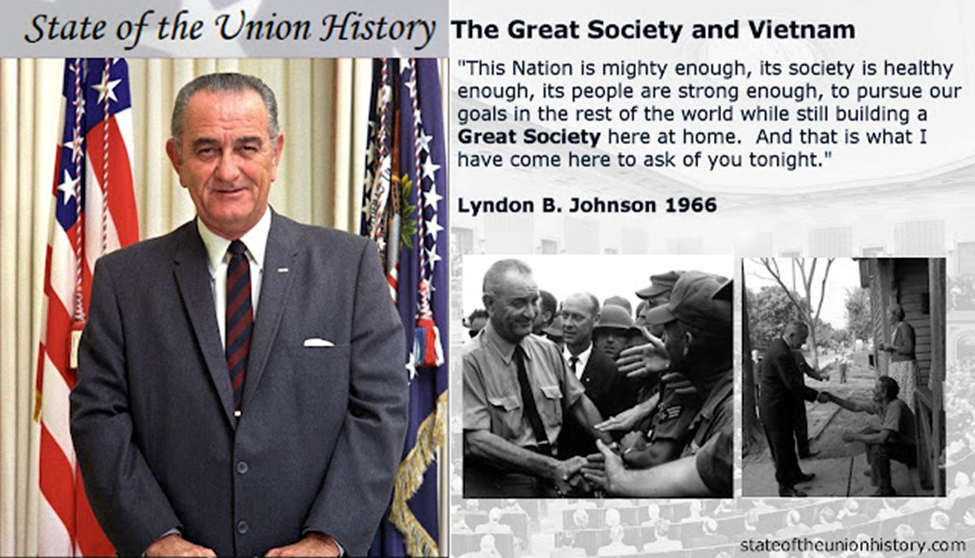Harry Targ
As the tragedy of the Russian invasion and the
devastation of Ukraine unfold, the war machines (policymakers, arms
manufacturers, educators, media propagandists) of various countries-Russian, NATO
alliance partners, and the US-ramp up their calls for more war. These advocates
for more violence, more nuclear threats, and more great power chauvinisms
increasingly take center stage. Rumors of “back channel” negotiations are
demeaned. Feelers for negotiation articulated by key leaders are ignored. And hints of negotiations and compromises and
concessions are ridiculed. Finally, any suggestions that China, an
“authoritarian state” could play a role in deescalating the crisis are
condemned.
And, in the midst of the escalating tensions and
finally the Russian invasion of Ukraine, the significant Biden program of
substantial social, economic, and environmental changes have been allowed to
flounder and die. Now Congress and the Administration eagerly legislate
more money for the military, more money
for our beleaguered Ukrainian ally, and increasingly remind the population that
China, the real enemy, is lurking in the global background. Health care, debt
relief for students, shifts to a Green Jobs Agenda, tax reform, raising the
minimum wage all need to put off for another day.
Last year the New Poor Peoples Campaign showed in an
informative flyer how money projected for the military could be used for human
needs. https://ips-dc.org/wp-content/uploads/2021/12/PPC-BBB-fact-sheet.pdf
And
elsewhere the NPPC pointed out that:
“Since Vietnam, the
United States has waged an ongoing war against diffuse enemies, siphoning
massive resources away from social needs. Out of every dollar in federal
discretionary spending, 53 cents [go] towards the military, with just 15 cents
on anti-poverty programs.”
Many of us remember the dramatic policies proposed, some implemented, of the Great Society. And twenty-five years earlier, during World War and before “the Great Society,” Henry Wallace, spoke of the the prospect of creating the “Century of the Common Man,” the absence of war, social and economic justice, and freedom. President Roosevelt called for a “New Economic Bill of Rights,” in 1944 embodying economic security and justice for all, and even Harry Truman advocated for a national health care system.
And what happened every time, the 1940s, the 1960s,
the 1990s, and now-threats of war, demands for preparations for war, escalating
military expenditures. The tragedy of how war and the mythology of its
inevitability is vividly reflected in the defeat of the Great Society programs.
The old essay below, see particularly the italicized words, suggests in one
moment the tragic loss of human development to war and violence.
One takeaway from this reflection is that there is an
inextricable connection between war-making abroad and human suffering at home.
Now is the time for peace and justice movements to act on these connections.
From: "Remembering the Great Society"
September 28, 2011
On Monday, September 26, 2011, the Reverend Jesse Jackson visited Ohio University, located at the northern edge of Appalachia. President Lyndon Johnson had introduced his vision of a “Great Society” in 1964 at this site and Jackson was returning 47 years later to call for the establishment of a White House commission to address poverty and hunger in America.
Jackson pointed out that Athens County, Ohio, where he spoke, represented
“ground zero” as to poverty in America today. Thirty-two percent of county
residents live in poverty.
The fact that increased poverty is a national problem was underscored in a
September 13 press release from the United States Census Bureau. The Census
Bureau reported that 46.2 million people lived below the poverty line in 2010,
the highest number in 52 years that is 15.1 percent of Americans lived in
poverty, the highest percent since 1993. The poverty line for a family of four
was $22,314. The New York Times (September 14, 2011) quoted Professor
Lawrence Katz, economist, who said that “this is truly a lost decade. We think
of America as a place where every generation is doing better, but we’re looking
at a period when the median family is in worse shape than it was in the late
1990s.”
In a press release, the Census Bureau identified some
additional data which reflects the economic status of large numbers of
Americans:
-The number of Americans below the poverty line in 2010 increased by 900,000
over 2009.
-Proportions of Black and Hispanic citizens living in poverty increased from
2009 to 2010. Black poverty rose to 27 percent from 25 percent; Hispanic
poverty 26 percent from 25 percent.
-48 million Americans, 18 to 64 years of age, did not work at all in 2010, up
from 45 million in 2009.
-Median income declines were greatest among the young, ages 15 to 24, who
experienced a 9 percent decline between 2009 and 2010.
-Childhood poverty rates rose from 20.7 percent in 2009 to 22 percent in 2010.
Timothy Smeeding, Director, Institute for Research and Poverty at the
University of Wisconsin, was quoted in the New York Times article:
“We’re risking a new underclass. Young, less-educated adults, mainly men, can’t
support their children and form stable families because they are jobless.”
Arloc Sherman, from the Center on Budget and Policy Priorities, reminded
readers that the level of poverty was higher and median income was lower in
2007 than 2001.
The Leadership Conference on Civil and Human Rights has pointed out in an
interesting essay entitled “Race, Class and Economic Justice” that the Johnson
programs, the “Great Society,” and its “War on Poverty,” were grounded in the
civil rights struggle for jobs and justice. When LBJ’s program got mired in
the escalating war in Vietnam, Dr. Martin Luther King launched the “Poor
People’s Campaign.”
Reverend Jackson reminded students and citizens of Athens County on September
13, 2011 that LBJ’s program was a comprehensive one linking government and
community groups. Among its major achievements the following needed to be
celebrated he suggested:
-The Food Stamp Act (1964) provided low income families with access to adequate
food.
-The Economic Opportunity Act (1964) created the Job Corps, VISTA, and other
community-based programs.
-The Tax Reduction Act (1964) cut income tax rates for low-income families.
-The Civil Rights Act (1964) outlawed discrimination in housing, employment,
and public accommodations.
-The Wilderness Preservation Act (1964) protected over 9 million acres of
national forests from developers.
-The Elementary and Secondary School Act (1965) provided federal aid to schools
with low-income students, including the establishment of the Head Start
program.
-Amendments to the Social Security Act (1965) established Medicare for retirees
and Medicaid for low-income health care recipients.
-The Voting Rights Act (1965) ended racial discrimination in voting.
-The Water Quality Act (1965) required states to clean up polluted rivers and
lakes.
-The Omnibus Housing Act (1965) provided for low income housing.
-The Clean Air Act (1965) amended legislation to add requirements for auto
emissions standards.
-The Higher Education Act (1965) created scholarships for college students.
-The School Lunch and Child Nutrition Act (1968) was expanded to provide food
to low-income children in schools and day care facilities.
Between 1964 and 1968 the United States Congress passed 226 of 252 bills into
law. Federal funds transferred to the poor increased from $9.9 billion in 1960
to $30 billion in 1968. One million workers received job training from these
programs and two million children experienced pre-school Head Start programs by
1968.
Progressives should revisit this history and tell the story of the successes
and failures of the 1960s vision and programs and work for the fulfillment of
the dream articulated by Dr. King and LBJ. Both visions presupposed the
connection between government, communities, and activists. And, it should be
made clear that the Great Society floundered, not because of errors in the
vision or programs, or because of “government bureaucrats,” or because the
“free market” could serve human needs better, but because of a disastrous
imperial war that sapped the support for vibrant and needed domestic programs.
Slogans about Money for Jobs and Justice, Not for War, constitute the lessons
for today.





